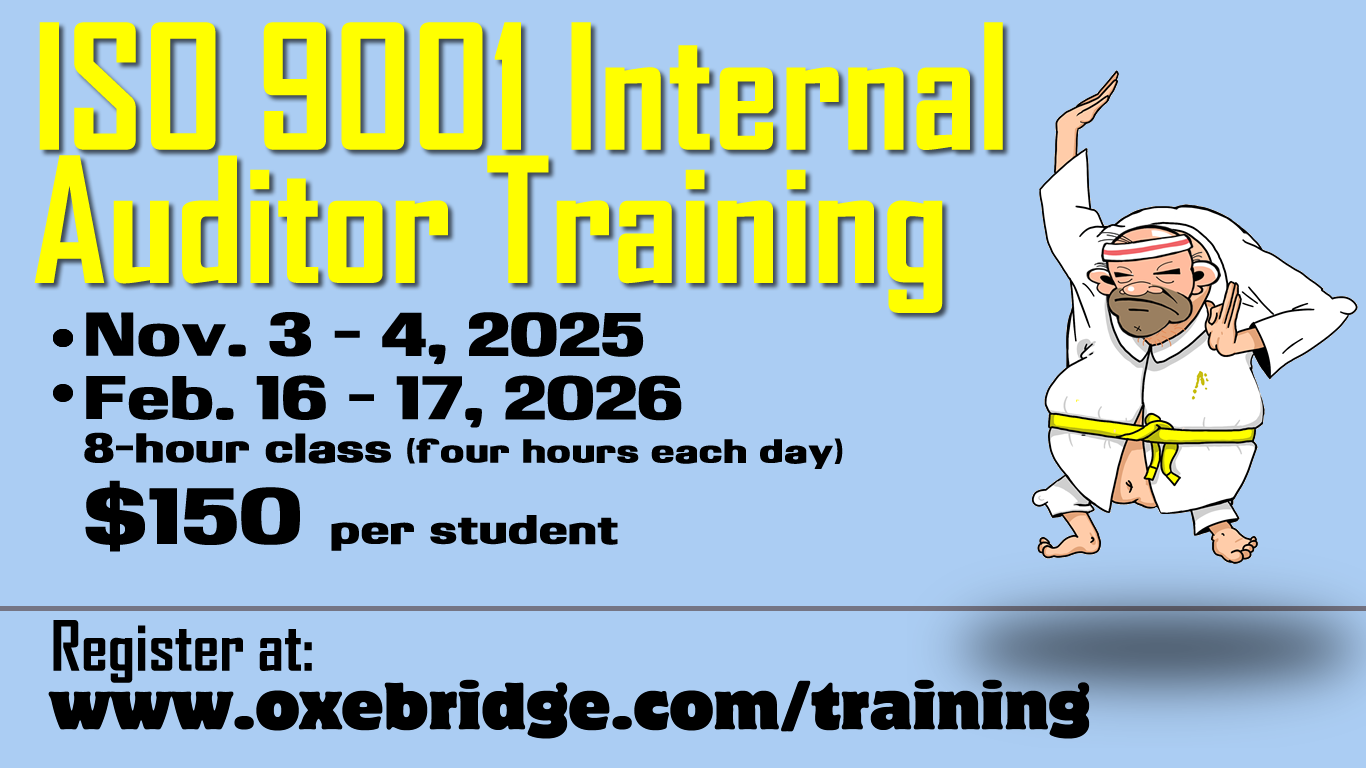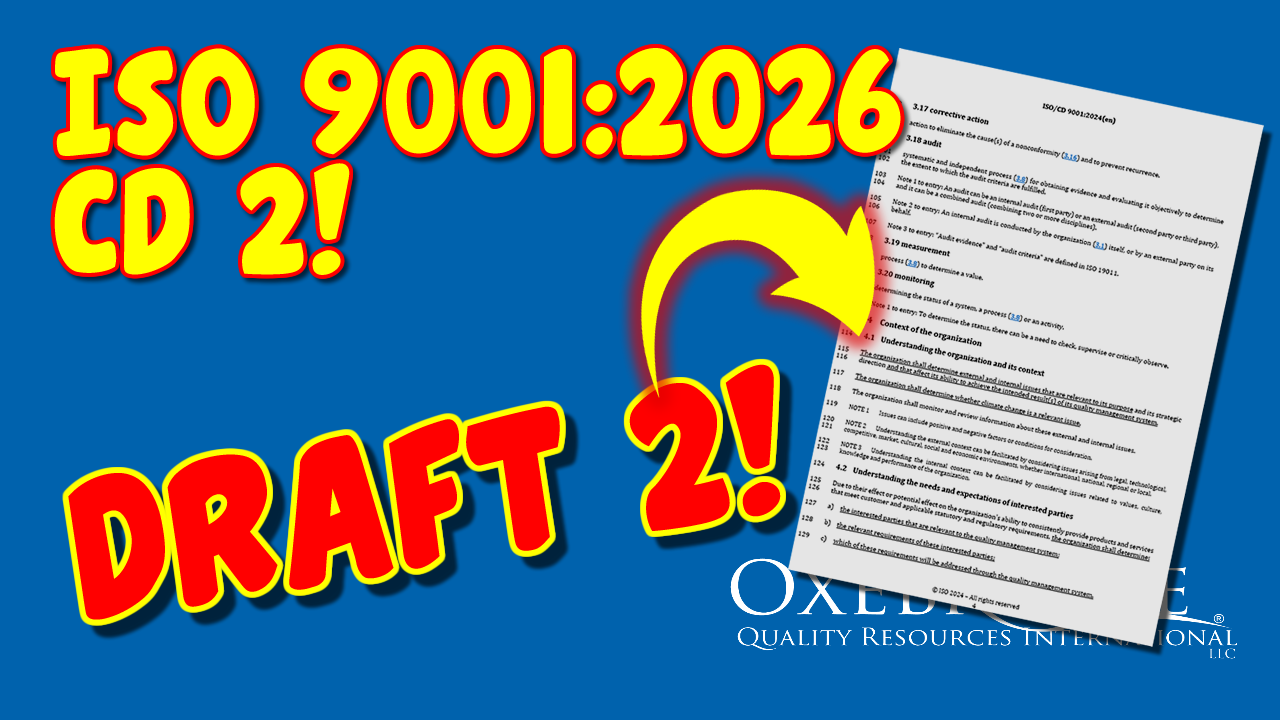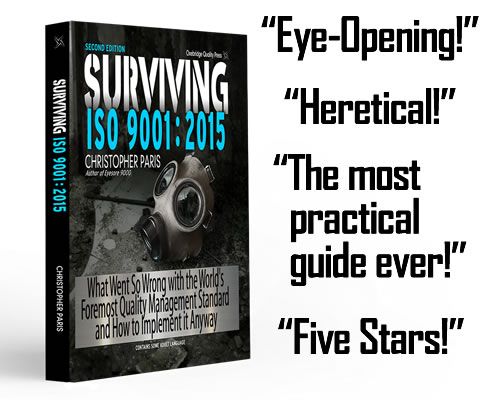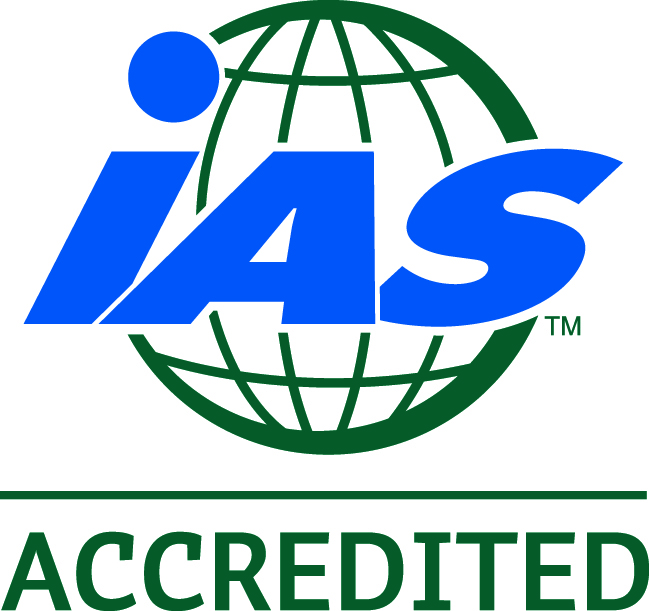 Throughout the world, one discovers that most nations only have a single Accreditation Body (AB) responsible for accrediting ISO 9001 certification bodies (CBs); the ABs operate according to ISO 17011, and then audit the CBs against ISO 17021 to ensure that ISO 9001 and related management system certifications are only issued in an objective, trusted manner. The accreditation scheme and surrounding rules exist to differentiate formal, recognized “accredited” certificates from those issued by fly-by-night self-accredited, or wholly unaccredited, “certificate mills.” The ABs also issue certificates of their own, typically to testing laboratories (ISO 17025) or other bodies that, themselves, then issue certificates.
Throughout the world, one discovers that most nations only have a single Accreditation Body (AB) responsible for accrediting ISO 9001 certification bodies (CBs); the ABs operate according to ISO 17011, and then audit the CBs against ISO 17021 to ensure that ISO 9001 and related management system certifications are only issued in an objective, trusted manner. The accreditation scheme and surrounding rules exist to differentiate formal, recognized “accredited” certificates from those issued by fly-by-night self-accredited, or wholly unaccredited, “certificate mills.” The ABs also issue certificates of their own, typically to testing laboratories (ISO 17025) or other bodies that, themselves, then issue certificates.
Decades ago, ISO mulled the idea of creating a single agency (the Quality Assessment Recognition System) to manage the accreditation scheme, but the effort fell apart due to a confluence of internal squabbles, ISO incompetence, political timidity, and pressure from the ABs themselves. In its place, the International Accreditation Forum (IAF) was formed, launched by six ABs, including DAkkS of Germany, UKAS of the UK, and RAB (now ANAB) from the US. The group was, and remains, ostensibly a monopolistic cabal, but operates legally and openly due to its ability to maneuver through the corridors of international trade bodies by way of its personal contacts and skillfully draft memoranda of agreement that benefit itself. As a result, the IAF wields a near-hypnotic power over international legislators. So powerful is the IAF machine, it has convinced national governments of the argument that each nation (“economy”) should only have a single AB, thus ensuring the health of the monopoly and cutting off any chance at competition.
State Sanctioned Monopoly
In the EU, this arrangement has been, inexplicably, enshrined in international law. Many countries bought into this arrangement because their national AB was also their national standards body, and typically a nation can only have one national standards body; in such cases, the standards body is typically a government agency anyway. But in certain Western nations, this is not the case, such as in the United States where ANAB is a private organization, not its standards body, and not a government agency at all. By enforcing the idea of “one AB per economy,” the IAF created one of the most open pyramid schemes in modern trade history, managing approximately $2 billion per year in the US alone. Money flows from consumers to ISO 9001 certified companies, up to their registrars (CBs) and then finally to ANAB. While ANAB is technically a non-profit, it’s management board is not, and they reap the rewards, meaning the entire US certification scheme benefits a handful of only five or so private individuals.
Thus it was a shock when, in recent years, a new player emerged in the AB space within the United States: the International Accreditation Service (IAS), a direct competitor to ANAB and a fellow member of the IAF. I spoke with IAS Founder Chuck Ramani and Mohan Sabaratnam, their Quality Manager, and specifically asked them how they got around the monopoly rule.
In Europe, the IAF succeeded in maintaining the one AB per nation rule, but this wasn’t a law in the US, where competition is a part of the culture, so were were able to fight against the IAF and win.
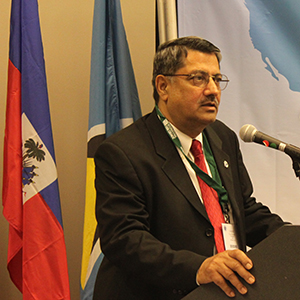
Chuck Ramani
Ramani is cordial and polite, being sure not to attack either the IAF or ANAB directly, partly due to his low-key personality. Reflective of this is IAS’ long-view approach to its growth plan, which stands in stark contrast to the aggressive “do anything we can get away with” style of ANAB. While ANAB invents standards and then convinces industries they need them after the fact, IAS is taking a slow, measured approach to building its brand in the US. “We don’t want to get business that we don’t deserve,” says Ramani.
When pressed on the built-in conflict of interest that having CBs pay ABs brings with it, Ramani is unfazed. To him, the business model is not built on keeping CBs accredited no matter what, it’s built on building long-term trust so that the brand sells itself in the end.
That slow pace may win in the end, but for now it’s hindering the IAS brand; few have ever heard of IAS, and the people I spoke to who had heard of them thought it was an unaccredited certificate mill, not an officially-recognized, IAF member accreditation body. IAS has also focused on building safety accreditation, and only has five accredited certification bodies in the US, and none are “big name” CBs such as those accredited by ANAB. One of them, Paragon Group Registrar, hasn’t even updated its website to reflect ISO 9001:2015 yet, making the whole thing look a little underclassed.
There’s also the question of whether IAS will do it differently. One of its registrars, AVU Registrations, offers the same training courses as the ANAB stable of CBs: the usual ISO and AS implementation classes that come perilously close to “consulting” and only don’t breach the line because of the ridiculous re-defining of the word in ISO 17021-1. It would be nice to see an accreditation body prohibit all training by a CB, to eliminate the potential conflict of interest entirely, but that may be too much to ask. If so, however, it’s not clear how IAS will differentiate itself form ANAB, and not eventually make the same mistakes.
David vs. Goliath Plus an Army of Undead Giants
But IAS has an uphill battle. ANAB is, above all, an aggressive marketer, and alongside UKAS and DAkkS, one of the world’s topmost dealmakers in industry. But it’s also fairly well loathed, by its competitors within the IAF as well as its own CBs. The zigzag of clients switching back and forth between ANAB and UKAS accreditations is reflective of how fickle CBs are, and how disloyal they are to the ANAB brand. Insiders say BSI is considering abandoning accreditation, giving a big middle finger to the IAF, and issuing unaccredited certifications on the strength of its own reputation and marketing. The trainer IRCA dropped accreditation years ago under the same thinking, and no ones appears to have noticed.
ANAB’s audits of its CB clients are, meanwhile, treated as either a nuisance or an outright joke. On one forum board, registrar reps from UL, DNV and NQA openly sneer at ANAB oversight audits, admitting publicly how they pull the wool over ANAB auditor’s eyes by auditing more aggressively when they’re around, and relaxing later when they’re gone. During a recent ANAB witness audit that I attended personally, we documented at least 17 violations of ISO 17021-1, including falsification of audit reports and — get this — the auditor threatening to sue the client for defamation after questions were raised about a single finding, and ANAB auditors ignored the entire debacle, one of them actually sleeping during the audit. Meanwhile, ANAB’s beleaguered president John Knappenberger makes tone-deaf, and possibly racist, presentations that prove he’s an incompetent boob that has no idea what’s going on. ANAB is coasting on its position, certainly not on its reputation or skill.
Which means that there’s an opening for IAS. ANAB’s CBs are disgruntled and tired of sending money to ANAB only to have their auditors sleep during witness events. Certificate mills slowly make a more and more compelling case as to why ANAB accreditation is meaningless, and thus why companies should just buy their ISO certs by mail and be done with it. The ANAB brand is tarnished and possibly beyond repair, at least in the management system certification scheme (their lab accreditations appear a bit healthier, although are again the product of growth by acquisition and aggressive marketing.)
The IAS Option?
Could, therefore, IAS offer an alternative? Sabaratnam indicates that IAS takes a strong position against conflicts of interest, and stands ready to de-accredit any of its CBs which violate ISO 17021-1. Ramani says “getting it right is important,” because of the “social impact of accreditation, [of] helping countries and helping economies.” By all accounts, their hearts are in the right place.
But will the CBs care? Certification bodies view accreditation as a nuisance, an box they have to check only to differentiate them from the cert mills, and otherwise a waste of money. “Contempt” is a word that easily describes their view of accreditations in general, and something they’d very much like to abandon if they could, thus saving all the money they send to ANAB. It’s not clear, therefore, why CBs would switch from ANAB to IAS or (another option) simply obtain dual-accreditation, and have both.
To succeed, IAS is going to have to improve its brand, first of all. It needs to pull a few big-name CBs away from ANAB, and boost its current management system CB roster, which seems to rely on outfits operating out of Turkey and Korea. Then, it needs to differentiate itself much more clearly, by openly promoting itself as ready to use the one power that ANAB is terrified to invoke: de-accrediting any CB that breaks the rules. Finally, it needs a big media push to get its name out there, so that CBs and end users know there’s an alternative to the ANAB stranglehold.
For certain, ANAB needs competition. The IAF should probably be broken up entirely, and its dubious MoA’s scattered to the four winds as the product of grand-scale crony capitalism run amok. Until then, any new player that can apply pressure on the incumbents is welcome.
Christopher Paris is the founder and VP Operations of Oxebridge. He has over 35 years’ experience implementing ISO 9001 and AS9100 systems, and helps establish certification and accreditation bodies with the ISO 17000 series. He is a vocal advocate for the development and use of standards from the point of view of actual users. He is the writer and artist of THE AUDITOR comic strip, and is currently writing the DR. CUBA pulp novel series. Visit www.drcuba.world




